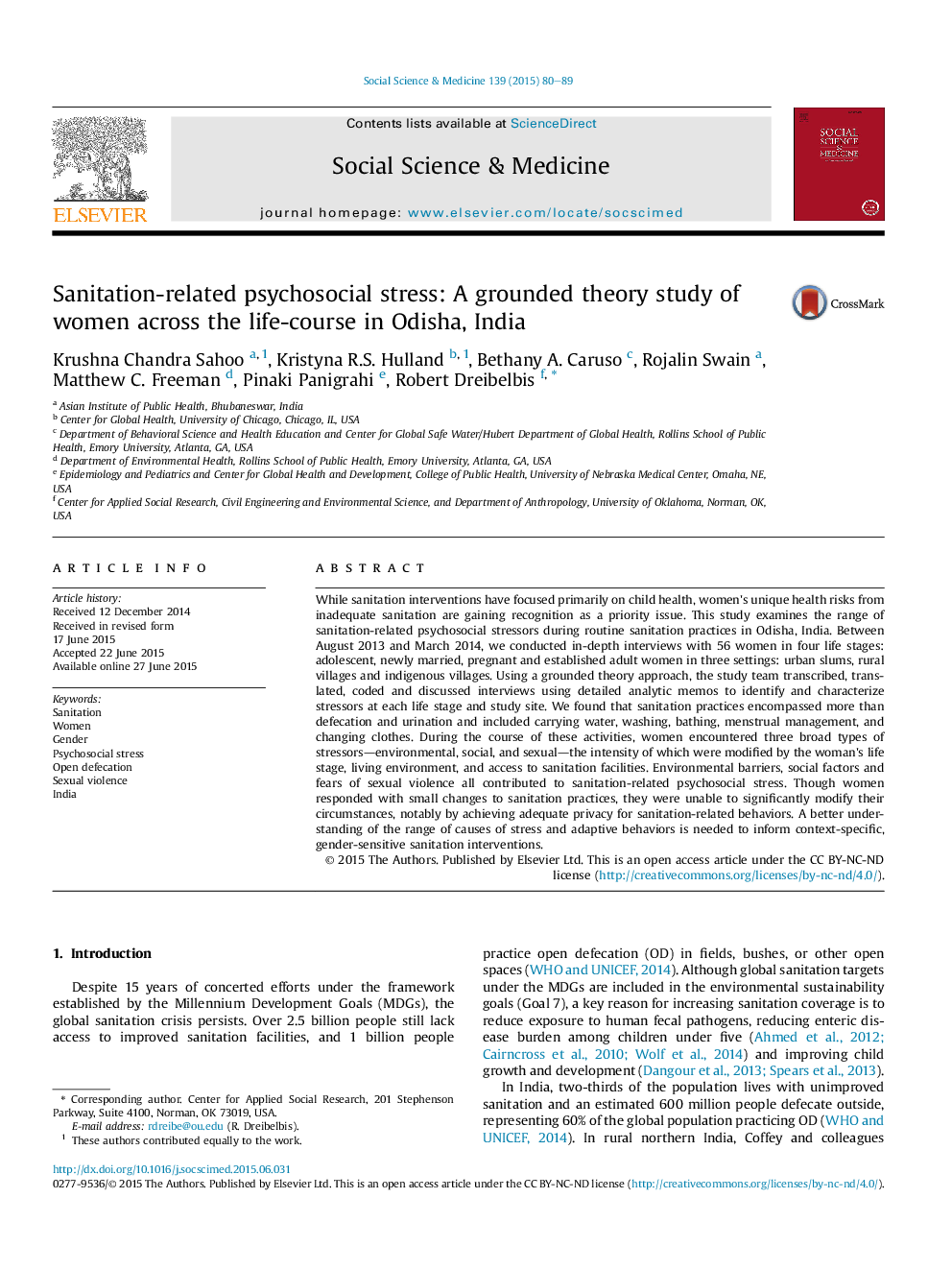ترجمه فارسی عنوان مقاله
استرس روانی- اجتماعی مربوط به بهداشت : مطالعه تئوری قدیمی زنان در سراسر دورة زندگی در اوریسا، هند
عنوان انگلیسی
Sanitation-related psychosocial stress: A grounded theory study of women across the life-course in Odisha, India
| کد مقاله | سال انتشار | تعداد صفحات مقاله انگلیسی |
|---|---|---|
| 76595 | 2015 | 10 صفحه PDF |
منبع

Publisher : Elsevier - Science Direct (الزویر - ساینس دایرکت)
Journal : Social Science & Medicine, Volume 139, August 2015, Pages 80–89
ترجمه کلمات کلیدی
بهداشت؛ زنان؛ جنسیت؛ استرس روانی؛ اجابت مزاج باز؛ خشونت جنسی؛ هندوستان
کلمات کلیدی انگلیسی
Sanitation; Women; Gender; Psychosocial stress; Open defecation; Sexual violence; India

